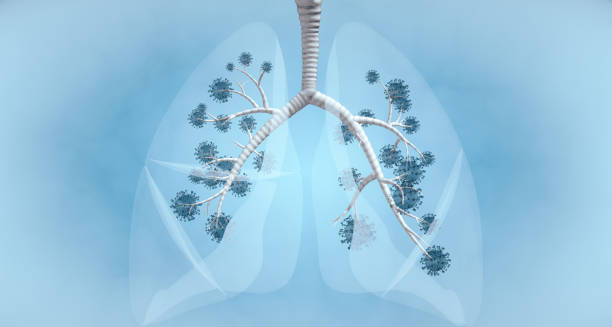Causes of Chest Infection
Causes of chest infection vary depending on whether the infection is viral, bacterial, or, in rare cases, fungal. Understanding the causes of chest infection helps guide treatment and determine whether medical intervention is necessary.
1. Viral Infections
Most cases of acute bronchitis — the milder form of chest infection — are caused by viruses. These include:
- Influenza (flu)
- Respiratory syncytial virus (RSV)
- Coronavirus (including COVID-19)
- Rhinovirus (common cold virus)
These viruses irritate the airways and lead to inflammation and mucus build-up.
2. Bacterial Infections | Causes of Chest Infection
Pneumonia is often caused by bacteria such as:
- Streptococcus pneumoniae – the most common cause
- Haemophilus influenzae
- Mycoplasma pneumoniae – known for causing “walking pneumonia”
- Staphylococcus aureus, especially in post-flu infections
Bacterial chest infections are usually more serious and may require antibiotic treatment.
3. Fungal Infections
Fungal chest infections are rare and usually occur in people with severely compromised immune systems, such as those with HIV/AIDS or undergoing chemotherapy. Examples include:
- Aspergillosis
- Histoplasmosis
These infections require specialised antifungal medications.
4. Risk Factors
Several factors increase the likelihood of developing a chest infection:
- Smoking: Damages the lungs and impairs the immune system
- Age: Very young children and adults over 65 are more vulnerable
- Chronic illnesses: Conditions like asthma, COPD, heart disease, and diabetes
- Immunosuppression: Due to medications, illness, or chemotherapy
- Poor hygiene: Increases exposure to contagious viruses and bacteria
5. Environmental Exposure
Exposure to pollution, dust, or chemicals can irritate the lungs, making them more prone to infection. Living in crowded or poorly ventilated conditions also raises the risk.
Whether viral or bacterial, the causes of chest infection often stem from pathogens invading a weakened or stressed respiratory system. Preventing infection involves hand hygiene, vaccination, and avoiding known risks like smoking.
[Next: Symptoms of Chest Infection →]


